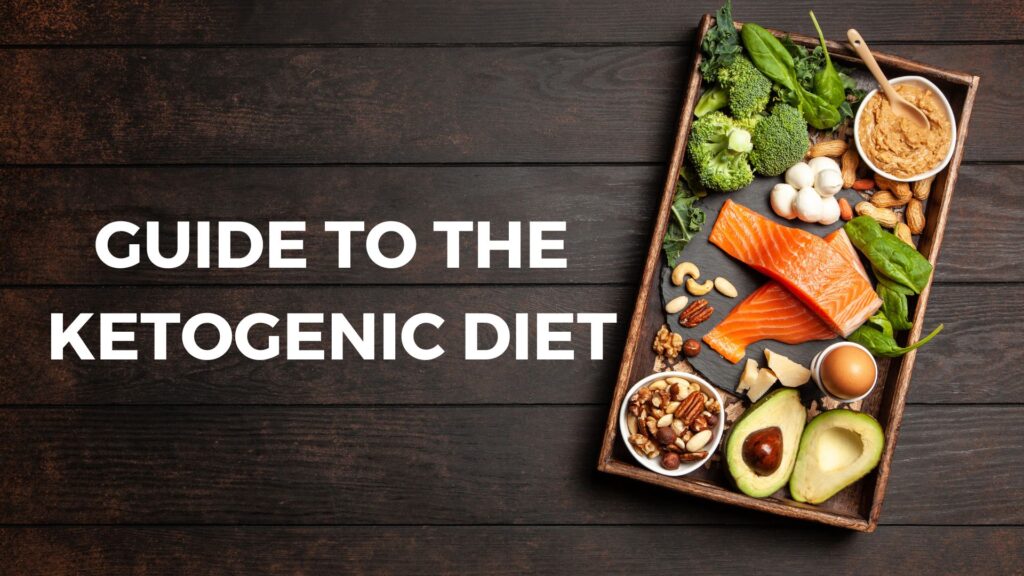The ketogenic diet has recently gained significant traction, drawing interest from health enthusiasts, fitness buffs, and those aiming to lose weight. But what’s really behind this high-fat, low-carb approach? Is it a temporary fad, or does it offer a path to lasting health and effective weight control?
In this blog, we’ll take a closer look at the ketogenic diet’s intriguing history, starting from its origins in the early 20th century when it was initially used to treat epilepsy. We’ll break down the science of ketosis and how this metabolic state changes the way our bodies process energy.
However, the ketogenic diet isn’t without its downsides. While many people have seen great results, others have faced difficulties. We’ll examine recent studies, compare the keto diet to more traditional eating plans, and assess the potential benefits and drawbacks of this unconventional approach.
Join us as we explore detailed research, fascinating historical insights, and practical advice to help you make informed choices about your diet. Whether you’re a keto expert or just curious about this dietary trend, there’s something valuable here for you. Let’s dive into the ketogenic diet together!
🍖 Journey Through Time: The Evolution of Human Diet 🥑
From Hunter-Gatherers to Modern Nutritional Science
🏹 The Hunter-Gatherer Era
- Our ancestors thrived on a diet comprising 65% animal-based and 35% plant-based foods.
- This balance fueled their active lifestyle and shaped our genetic makeup.
❄️ The Inuit Insight
- Inuit traditions reveal a diet high in fat (75-80%) and protein (15-20%), with minimal carbs (2-5%).
- This unique composition challenges our understanding of ‘balanced’ nutrition.
🔬 The Age of Nutritional Science
- Recent studies show low-carb diets can lead to an extra 2 pounds of weight loss compared to low-fat diets over a year.
- A 2-year study revealed improved blood sugar control in type 2 diabetes patients following a low-carb approach.
- After 6 months, a very low-carb diet was found to boost heart health markers in obese adults.
- Emerging research suggests potential mental health benefits, including improved symptoms of depression and anxiety.
🚀 The Modern Twist: Low-Carb Revolution
As we journey from our ancestral roots to modern nutritional science, low-carb and ketogenic diets emerge as potential keys to unlocking optimal health. These approaches echo our evolutionary past while addressing contemporary health challenges.
🥑 The Ketogenic Diet: A Century of Discovery 🧠
From Epilepsy Treatment to Modern Nutrition Phenomenon
1920s: The Birth of Keto 🍼
- Ketogenic diet developed as a treatment for epilepsy in children.
- Inspired by the traditional Inuit diet: 75-80% fat, 15-20% protein, 2-5% carbs.
The Keto Formula 🧮
- Modern keto aims for: 70-75% fat, 20-25% protein, 5-10% carbs.
- On a 2,000-calorie diet: ~167g fat, 100g protein, 25g carbs daily.
- Ketosis typically requires <50g carbs/day, sometimes as low as 20g.
Health Horizons 🌅
- Some studies show improvements in cholesterol, blood sugar, and blood pressure.
- Still used to treat intractable epilepsy in children, reducing seizures.
- Initial rapid weight loss often due to water loss from glycogen depletion.
Nutritional Nuances ⚖️
- Potential deficiencies: calcium, vitamin D, phosphorus, and magnesium.
- American Heart Association recommends limiting saturated fat to 6% of total calories.
- Long-term adherence tends to be lower compared to diets like Mediterranean.
The Big Picture 🖼️
- Most keto studies are short-term (12 weeks or less).
- Long-term effects and safety for weight loss remain unclear.
Keto Diet
75% Fat
20% Protein
5% Carbs
Standard American Diet
40% Fat
11% Protein
48% Carbs
🥑 Ketogenic Diet: Comprehensive Facts and Insights 🧠
Historical Context
- The ketogenic diet was first developed in 1921 by Dr. Russel Wilder as a treatment for epilepsy in children.
- It has been used for obesity treatment since the 1960s.
Ketone Levels
- Nutritional ketosis is typically defined as blood ketone levels between 0.5-3.0 mmol/L.
- Ketone levels above 3.0 mmol/L are not necessarily better for weight loss and may increase the risk of side effects.
Macronutrient Composition
- A typical ketogenic diet aims for about 70-75% of calories from fat, 20-25% from protein, and 5-10% from carbohydrates.
- On a 2,000-calorie ketogenic diet, this translates to about 25 grams of carbohydrates, 100 grams of protein, and 167 grams of fat per day.
Weight Loss Comparison
- A meta-analysis found that individuals on ketogenic diets lost about 2 pounds more than those on low-fat diets after 1 year.
- However, the difference in weight loss between ketogenic and conventional diets tends to disappear after about a year.
Adherence Rates
- One study showed higher adherence to a low-carb diet during the first six months compared to other diets, but lower compliance overall by the end of a two-year period.
Potential Benefits
- Some studies have shown improvements in total cholesterol, blood sugar, and blood pressure on a ketogenic diet.
- The diet has been used to treat children with intractable epilepsy, with some success in reducing seizure frequency.
Nutrient Concerns
- Strict ketogenic diets may lead to deficiencies in calcium, vitamin D, phosphorus, and magnesium.
- The American Heart Association recommends limiting saturated fat intake to 6% of total caloric intake, which is about 13 grams for someone consuming 2,000 calories.
Long-Term Effects
- The safety and long-term effects of the ketogenic diet for weight loss remain unclear, with most studies being short-term (12 weeks or less).
- More research is needed to determine the long-term sustainability and health impacts of the ketogenic diet.
🚨 Important Considerations
The ketogenic diet represents a significant departure from standard dietary recommendations. It’s crucial to consult with a healthcare professional before starting this diet, especially if you have any pre-existing health conditions.
Note: This information is based on current research and may evolve as new studies emerge. Individual responses to the ketogenic diet can vary significantly.


